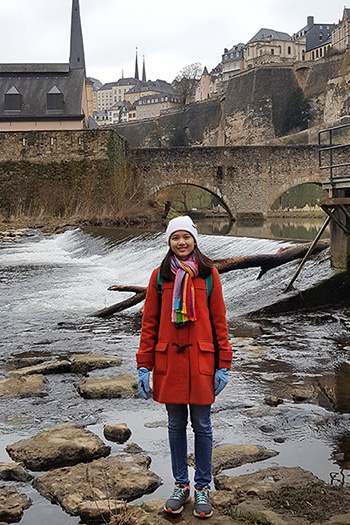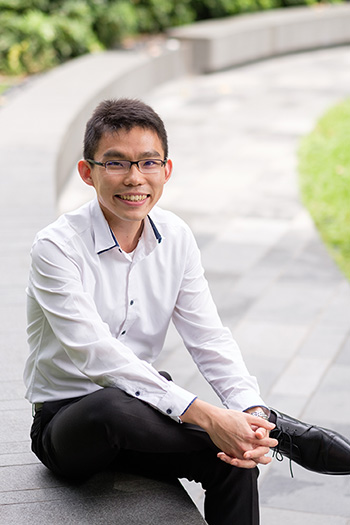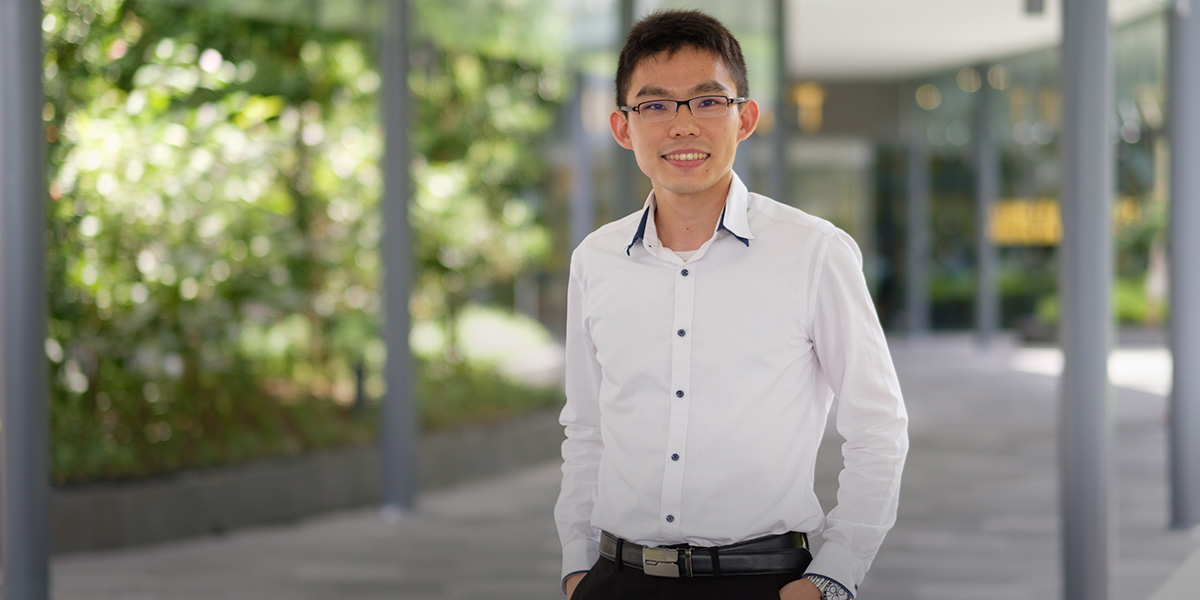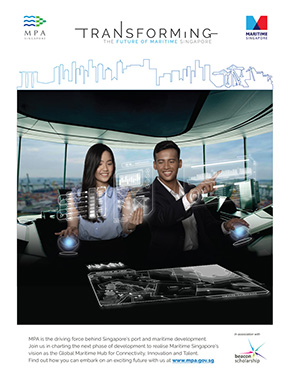Singapore has one of the most bustling and vibrant maritime industries in the world - connected to over 600 ports in over 120 countries globally and receiving about 140,000 vessel calls each year.
To keep up with this capacity, MPA is in the midst of an exciting transformation to be future-ready. A future-ready MPA is envisioned to be relevant, responsive to feedback, resourceful in innovation and efficiency, and resilient to modern challenges.
Two MPA scholars, Tan Hanqiang and Melissa Ng, open up about the dynamic and changing face of the maritime industry and the thrilling strategies MPA has set in motion to be future-ready.
How would you describe the maritime industry in Singapore and the region presently?
Hanqiang: The maritime industry is undergoing a period of transformation making it a very exciting time to be in the industry. On the technology front, we are seeing the application of blockchain, big data and automation. On the environmental front, the International Maritime Organisation adopted an initial strategy to reduce greenhouse gas emissions from shipping in April 2018. This, too, will spur a new generation of technology and alternative fuels that will make ships cleaner and more efficient.
Melissa: Over the last few years, the maritime industry has weathered several challenges. Efforts to raise productivity through digitalisation were supported through funding of research and development projects and dialogue with industry. Instead of resting on her laurels, Singapore has stepped up efforts to develop other sectors in the maritime industry, such as arbitration and innovation. I believe Singapore’s foresight and planning leave her well placed in the region to retain her trademark competitiveness, efficiency, and attractiveness.

Melissa Ng Poh Ni
Undergraduate
MPA Overseas Undergraduate
Scholarship
Bachelor of Engineering
(Electrical and Electronics
Engineering)
University of Cambridge
When you embarked on this scholarship journey, how did you aspire to contribute to the maritime industry?
Hanqiang: My broad approach was to use and apply my strengths in economics to enhance and defend Singapore’s maritime hub status as a whole. To this end, I was interested in getting into the economic regulatory aspects of the industry so as to create a business and regulatory environment that would help the maritime industry to thrive.
Melissa: Globally, efforts to digitalise the maritime industry have also taken off. With technical knowledge, I aspire to contribute fresh ideas to rejuvenate the maritime industry and aid in Singapore’s shift to higher value services, as part of Singapore’s digitalisation journey.
How did the opportunities provided by the scholarship fully equip you with confidence and skills to execute your roles and aspirations well?
Hanqiang: The scholarship gave me the opportunity to take on two internships at the Port Policy and Planning divisions where I was given meaningful and impactful work that involved economic regulation and strategic planning. Opportunities like these widen your perspectives as you learn how Singapore is perceived by foreign delegates. In addition, they increase your capacity and knowledge as you start to learn the intricacies of world trade, diplomacy and international relations.
Melissa: The scholarship provided many opportunities to network with MPA staff across many different roles, allowing me to gain insight to the diverse scope of work at MPA and the difficulties faced at each level.
As part of the division spearheading digitalisation efforts in Singapore’s maritime industry, I had many opportunities to engage with members of the industry, allowing me to understand industry concerns and how government efforts can be aligned with the industry’s needs. Overall, MPA has provided me with a high level of exposure both across the organisation and sectors of the industry, giving me confidence that I can contribute positively to Singapore’s maritime industry.

Tan Hanqiang
Manager (International)
MPA Overseas Undergraduate
Scholarship
Bachelor of Arts (Economics)
Washington University in St Louis
Masters of the Arts Programme in Social Sciences
(MAPSS)
University of Chicago
Share with us the culture at MPA.
Hanqiang: MPA has a culture of professionalism and care for one another. The staff here genuinely take pride in the work that they do. I think my colleagues genuinely care for one another and the organisation fosters a close knitted culture through various staff appreciation activities.
Melissa: The culture at MPA is a friendly and welcoming one where cooperation between divisions and across roles is valued. My colleagues in other divisions, from Human Resources to Port Systems, were very helpful in lending advice and help readily.
If you had to give one piece of advice to future scholars who will partner with MPA for their future, what would you say?
Hanqiang: Use every opportunity given to you to expand your horizons and learn as much as you can, consciously observe how and why things are being done, stay humble, and never be afraid to ask questions. No matter how stressed or worried you may feel, know that you will ultimately grow and benefit tremendously from the experience.
Melissa: Apart from technical capabilities, people skills are very important. Rather than dispensing advice, listening with an open mind and considering perspectives different from your own is important as every opinion is valid. Only with the respect of one’s peers and teamwork can one perform well in their job, to the best of their ability.

